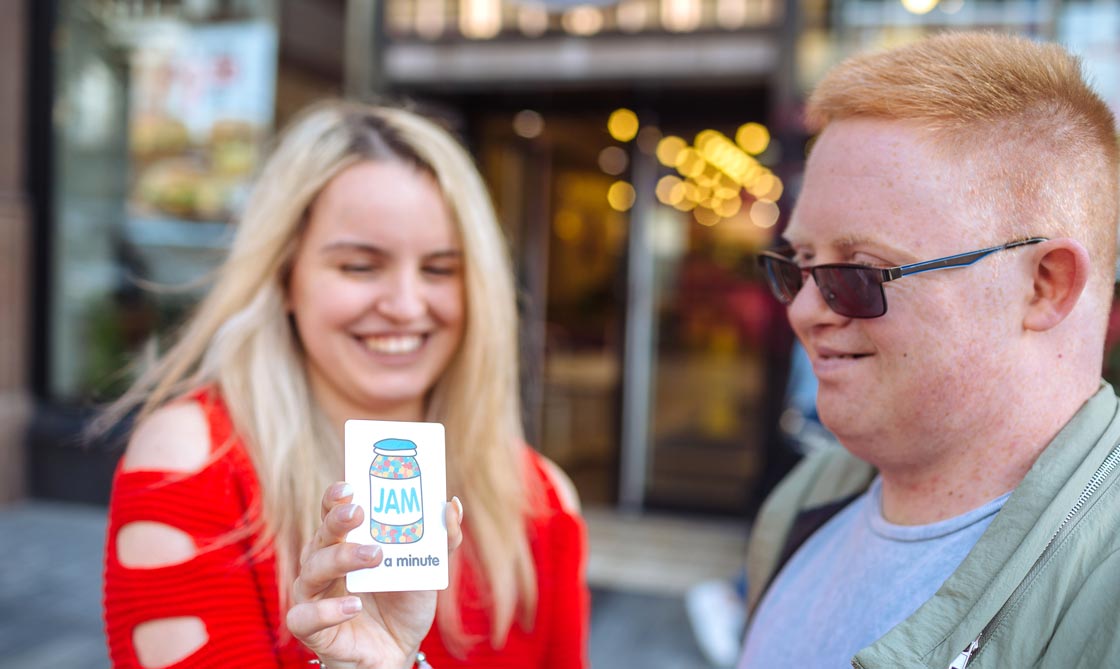A pilot scheme which is being trialled on Hastings trains hopes to raise awareness of passengers with learning difficulties, autism and hidden disabilities. The scheme involves both the JAM card and the Sunflower Lanyards which aim to support passengers who need extra assistance when using the rail network. Though currently in the trial stage, these schemes are part of a wider initiative to improve the service across all Southeastern Trains.
What is a JAM Card?
A JAM or Just A Minute Card is a small card that can be used by passengers who may have difficulty communicated, either because they have a learning disability, autism or other condition which makes it harder for them to speak to other passengers or staff. The card can be used to inform a member of staff, such as the ticket inspector, in a discreet manner that the passenger may need additional help or time.
What is a Sunflower Lanyard
The Sunflower Lanyards are green lanyards adorned with sunflowers that have been launched at a number of businesses including airports and super markets and are a way for members of staff to discreetly notice someone who may need extra help.

Image: JAM Card
Where can I find them?
The lanyards can be picked up at any of the companies that are taking part in the scheme or online here. JAM cards are available as both an app and a physical card, either apply online for a card here or if you are travelling on south western trains through the trial stations, you can find them up at ticket offices on the Tonbridge to Hastings route.
Who can get them?
There is no qualifying list of conditions, so anyone who wants a lanyard or a card are welcome to use them.
What does this mean for train travel?
If you are travelling around on Southeastern trains specifically on the route being trialled, you can be sure that using either of these aids will alert staff that you may need extra assistance. In the long term, Southeastern has hosted a series of internal training sessions across the network for all staff who work with the public. This includes training on how best to support passengers with hidden disabilities as well as those with conditions such as dementia. With the results from the trial as well as the additional training, it is hoped that travelling by train will be a much more comfortable experience for those with additional needs. Find out more about the scheme here.


 to add an item to your Itinerary basket.
to add an item to your Itinerary basket.


